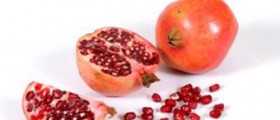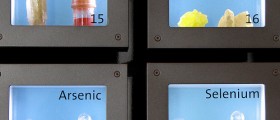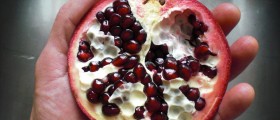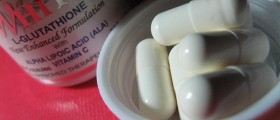
Simply put, antioxidants are molecules capable of inhibiting the oxidation of other molecules. Antioxidants have great impact on humans’ health as they significantly slower or prevent the oxidative damage caused by substances called free radicals. Oxidative damage can lead to cell degeneration, dysfunction and the beginning of serious health problems like heart disease and diabetes. Antioxidants may also boost the immune function and lower one’s risk for infection and cancer.
What are free radicals?
Free radicals are atoms, molecules, or ions with at least one unpaired electron. The unpaired electrons cause radicals to be highly chemically reactive. Body is normally exposed to free radicals by various metabolic processes that take place in the body. For example, free radicals are being released in the processes of burning of sugars for energy, or releasing digestive engines to break down food. Free radicals may also develop in a process of breaking down medicines, or they can simply enter the body through pollutants. Being highly reactive, these same free radicals can contribute to unwanted side reactions resulting in cell damage. This happens because unpaired atoms, molecules, or ions tend to “steal” an electron from nearby molecules, making them defective and causing damage. The side effects are most obvious when there are a great number of free radicals in the body.
Why are antioxidants beneficial?
Molecules called antioxidants can interact and stabilize free radicals, by donating their electrons to unpaired atoms, molecules, or ions. Moreover, antioxidants are able to donate their electrons to damaged DNA or fatty acids, and literally reverse the damage.
Some antioxidants, such as superoxide dismutase, catalase and gluthathione peroxidase, are synthesized by the body. They are actually antioxidant enzymes and a self-defense against free radicals.
The other antioxidants are obtained from food sources like vitamins (such as vitamins C and E), some minerals (such as selenium), and flavonoids, which are found in plants. Various fruits and vegetables are the best sources of antioxidants and flavonoids are usually found in dark fruits, red wine and teas.
Antioxidants are very beneficial in treatment and prevention of many medical conditions such as coronary artery disease (CAD), some cancers, macular degeneration, Alzheimer's disease, and some arthritis-related conditions. Antioxidants are also available in the form of food supplements, but one should keep in mind that the U.S. Food and Drug Administration (FDA) do not regulate dietary supplements. The best possible way to get enough antioxidants is to consume a lot of fruits and vegetables, especially the best antioxidant sources such as: blueberries, walnuts, cranberries, acai berries, pomegranates, tomatoes, parsley, broccoli, spinach, dark chocolate and green tea.

















Your thoughts on this
Loading...